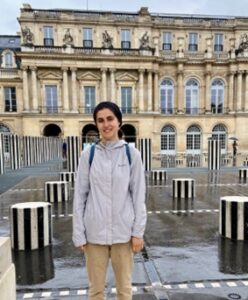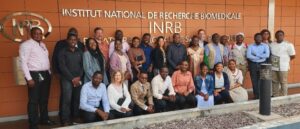Two months ago feels like a lifetime ago, before I fell in love with the vibrant, charming city of Maputo. Before heading to Mozambique for my practicum, I was filled with nervous anticipation, and I had set a goal for myself that no matter how the whole of my practicum goes, that I would advance my life-skills of flexibility, adaptability, and self-sufficiency through this experience. I wanted to confirm that I had the commitment and ability to enter the field of global public health and be able to make meaningful contributions to the communities I worked with. I knew that it was easy to say that I am interested in working in a global setting, but of course an entirely different story when I am in a new country, navigating cultures and experiences that are unfamiliar to me.
With gratitude, I owe it to my parents for raising me as a global citizen. They raised me in a bicultural household in the United States and Japan, encouraging my travels and experiences in different countries, and fostering my love and never-ending curiosity of people and their cultures. My bachelors in Anthropology gave me the tools to lovingly interact with the core of people’s identities and taught me grave warnings of how curiosity without boundaries, permission, or consideration of power-dynamics brings considerable, tangible harm to individuals and their communities. My bachelors in Women’s and Gender Studies taught me that no work is done in a vacuum and no research can be objective so long as the identities we hold move us in the work that we do and the products we create. Both fields showed me that it is crucial to understand and reflect on the identities and beliefs I hold and taught me how to acknowledge this in the work I do, qualitative research, whose heart lies in the connection between people. Now, my studies in Public Health give me the language and skills to navigate the culture and landscape of global public health and connect the gap between understanding problems and creating meaningful solutions.
All of these parts of my identity and education are what I brought along with me in my journey to Mozambique, but one crucial part was missing, which was my ability to speak Portuguese. I realized that in contexts where I understood the language, I was receiving so much connection daily with others, through small interactions, that I was unable to do in this setting. But I also discovered how much I was able to communicate through body language and context clues (my beginner level Spanish also helped). Gratitude bloomed at every interaction where patience and effort were afforded to me and I was never treated with annoyance for my inability to speak. So despite the language barrier that existed with many of those I interacted with in my time in Maputo and Lichinga, the work I did was informed by community workers and local staff, which I was able to build relationships with. The many conversations I had over translation apps warmed my heart, knowing that despite the difficulty of communication, my coworkers and community partners were willing to sit and patiently create a bond with me.
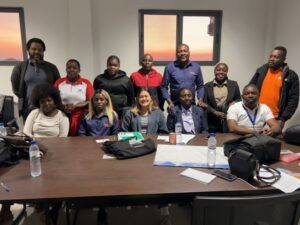
From these connections was I able to offer my services in qualitative research, always deferring to the knowledge and experiences of the community facilitators who conducted focus groups with youth to understand what they wanted and needed from the Center for Reproductive Justice. There was of course another barrier, culture, but similar to how I adapted questionnaires and materials based on feedback, once the community facilitators understood the intent of our questioning, was able to adapt the language to something that was more appropriate for the setting. So, although at times I felt alone during my time in Lichinga (less so with my furry friends!), connections are what drive the heart of public health work we do with communities, and I hope to see Maputo again after I graduate. Tchau tchau until then!
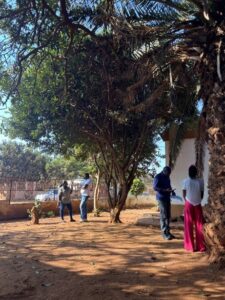
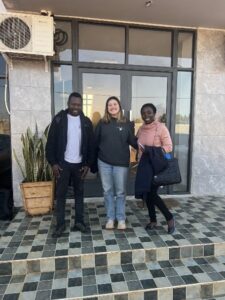
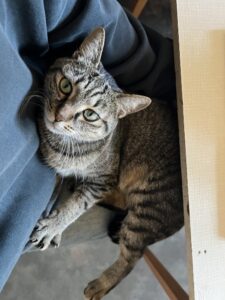
Alyssa

